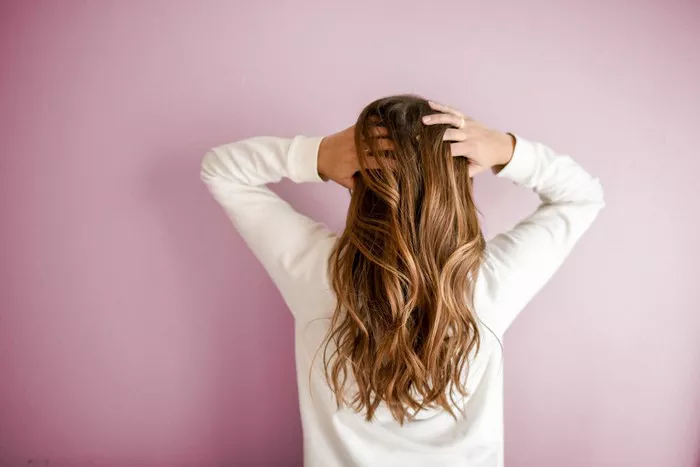Asian hair, known for its unique texture, thickness, and shine, requires specific care routines to maintain its health and appearance. One of the most frequently asked questions among individuals with Asian hair is, “How often should I wash my hair?” This article explores the various factors that influence washing frequency, offers personalized recommendations, and provides tips for maintaining healthy hair.
1. Understanding Asian Hair Types
Characteristics of Asian Hair
Asian hair typically has distinct characteristics:
Texture: Generally straight and thick, Asian hair often has a smooth cuticle layer, contributing to its shiny appearance.
Density: Many people of Asian descent have a high number of hair strands per square inch, resulting in dense hair.
Oil Production: The scalp tends to produce oil at a moderate rate, which can influence how often hair should be washed.
Different Asian Hair Types
While the general characteristics apply, there are variations within Asian hair types, including:
Straight Hair: Commonly found in East Asian populations, straight hair can appear greasy if not washed frequently enough.
Wavy Hair: Found in South and Southeast Asian hair types, wavy hair may benefit from less frequent washing to maintain moisture.
Curly Hair: Although less common, some individuals have curly Asian hair, which typically requires more hydration and can go longer between washes.
2. Factors Influencing Washing Frequency
Determining how often to wash Asian hair depends on several factors:
Hair Type and Texture
Straight Hair: May require more frequent washing due to oil buildup.
Wavy and Curly Hair: Can often go longer between washes, as natural oils can take longer to travel down the hair shaft.
Scalp Condition
Oily Scalp: If you have an oily scalp, you might need to wash your hair every day or every other day.
Dry Scalp: A dry scalp may require washing every three to five days to avoid stripping natural oils.
Lifestyle and Activity Level
Active Lifestyle: If you exercise frequently or sweat a lot, you may need to wash your hair more often to remove sweat and dirt.
Environmental Factors: Exposure to pollutants, humidity, and weather conditions can affect how often you should wash your hair.
Hair Products
Use of Styling Products: Frequent use of gels, sprays, and other styling products may necessitate more frequent washing to prevent buildup.
Hair Treatments: If you regularly use deep conditioners or treatments, you might adjust your washing schedule accordingly.
3. Recommended Washing Frequency
General Guidelines
While individual preferences and circumstances vary, here are some general recommendations:
Straight Hair: Wash every 1-2 days.
Wavy Hair: Wash every 2-4 days.
Curly Hair: Wash every 4-7 days, depending on moisture needs.
Signs It’s Time to Wash
Consider washing your hair when you notice the following signs:
Oiliness: Your hair feels greasy or looks shiny.
Dirt and Product Buildup: There’s visible residue from styling products.
Scalp Itchiness: You experience discomfort or itchiness on your scalp.
4. Tips for Washing Asian Hair
Choose the Right Shampoo
Sulfate-Free Shampoos: Opt for sulfate-free formulas to avoid stripping natural oils.
Moisturizing Shampoos: If your hair is dry or damaged, use moisturizing shampoos to maintain hydration.
Condition Regularly
Use Conditioner: Always condition your hair after shampooing to replenish moisture.
Deep Conditioning Treatments: Incorporate deep conditioning treatments once a week for added hydration.
Technique Matters
Gentle Washing: Avoid harsh scrubbing; instead, massage the scalp gently to cleanse.
Rinse Thoroughly: Ensure all product residue is washed out to prevent buildup.
Adjusting to Seasons
Summer: You may need to wash more frequently due to sweat and oil production.
Winter: Reduce washing frequency to avoid dryness caused by cold weather.
5. Alternatives to Frequent Washing
If you prefer not to wash your hair daily, consider these alternatives:
Dry Shampoo
Dry shampoo can be a lifesaver for those with oily roots. It absorbs excess oil and refreshes hair without water.
Scalp Refreshers
Scalp refreshers or mists can help maintain cleanliness and moisture between washes, particularly for wavy and curly hair types.
Co-Washing
For those with curly or textured hair, co-washing (using conditioner to wash) can help cleanse without stripping natural oils.
6. Common Mistakes to Avoid
Over-Washing
Washing hair too often can strip natural oils, leading to dryness and damage. Stick to the recommended frequency based on your hair type.
Ignoring Scalp Care
Neglecting scalp health can lead to issues like dandruff and irritation. Consider using scalp treatments if you experience problems.
Using the Wrong Products
Using products not suited for your hair type can lead to poor results. Always choose products that cater to your specific needs.
7. Conclusion
Determining how often to wash Asian hair depends on individual hair types, scalp conditions, and lifestyle factors. By understanding your unique needs and following recommended guidelines, you can maintain healthy, beautiful hair. Remember to choose the right products, adjust your routine according to environmental changes, and listen to your hair’s needs. With proper care, you can enjoy the natural beauty and shine that Asian hair is known for.
Related topics:
- Can Hair Grow Back After Iron Deficiency?
- Do We Need to Wash Hair Daily
- Does Trimming Your Hair Make It Thicker


